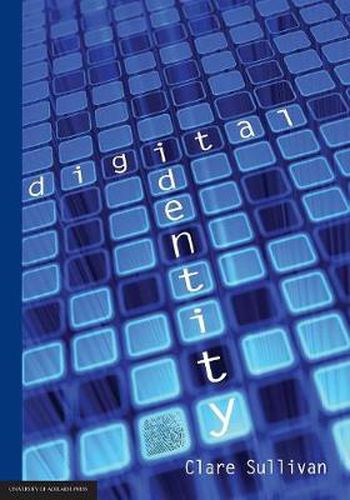Readings Newsletter
Become a Readings Member to make your shopping experience even easier.
Sign in or sign up for free!
You’re not far away from qualifying for FREE standard shipping within Australia
You’ve qualified for FREE standard shipping within Australia
The cart is loading…






This title is printed to order. This book may have been self-published. If so, we cannot guarantee the quality of the content. In the main most books will have gone through the editing process however some may not. We therefore suggest that you be aware of this before ordering this book. If in doubt check either the author or publisher’s details as we are unable to accept any returns unless they are faulty. Please contact us if you have any questions.
This is the first full-length study of digital identity in a transactional context, from a legal perspective.
Clare Sullivan’s analysis reveals the emergence of a distinct, new legal concept of identity. This concept is particularly clear under a national identity scheme such as the United Kingdom and Indian schemes. However, its emergence is evident even in jurisdictions, like Australia, which do not have a formal national identity scheme. Much of the analysis can also be extrapolated to proprietary schemes such as those run by banks and other businesses.
An individual’s digital identity which is used for transactional purposes has crucial functions which give it legal personality. The author argues that an individual’s digital identity also has the characteristics of property which can, and should, be legally protected. Identity theft is defined using the emergent concept and the study shows that digital identity is property which capable of actually being stolen and criminally damaged.
The study examines the emergence of attendant legal rights and duties including a new right to digital identity and its legal protection. Dr Sullivan argues that an individual has the right to an accurate, functional digital identity and shows that this right exists in addition to the right to privacy.
Dr Sullivan maintains that, considering the essentially public nature of identity, the right to identity provides better, and more appropriate, protection than is afforded by the right to privacy. She asserts that the importance of the right to identity in this context has been obscured by the focus on privacy in international legal scholarship and jurisprudence.
The functions and legal nature of digital identity are analysed using real examples which highlight the implications for individuals, businesses and government. The findings have the potential to fundamentally change the way digital identity is legally and commercially regarded.
$9.00 standard shipping within Australia
FREE standard shipping within Australia for orders over $100.00
Express & International shipping calculated at checkout
This title is printed to order. This book may have been self-published. If so, we cannot guarantee the quality of the content. In the main most books will have gone through the editing process however some may not. We therefore suggest that you be aware of this before ordering this book. If in doubt check either the author or publisher’s details as we are unable to accept any returns unless they are faulty. Please contact us if you have any questions.
This is the first full-length study of digital identity in a transactional context, from a legal perspective.
Clare Sullivan’s analysis reveals the emergence of a distinct, new legal concept of identity. This concept is particularly clear under a national identity scheme such as the United Kingdom and Indian schemes. However, its emergence is evident even in jurisdictions, like Australia, which do not have a formal national identity scheme. Much of the analysis can also be extrapolated to proprietary schemes such as those run by banks and other businesses.
An individual’s digital identity which is used for transactional purposes has crucial functions which give it legal personality. The author argues that an individual’s digital identity also has the characteristics of property which can, and should, be legally protected. Identity theft is defined using the emergent concept and the study shows that digital identity is property which capable of actually being stolen and criminally damaged.
The study examines the emergence of attendant legal rights and duties including a new right to digital identity and its legal protection. Dr Sullivan argues that an individual has the right to an accurate, functional digital identity and shows that this right exists in addition to the right to privacy.
Dr Sullivan maintains that, considering the essentially public nature of identity, the right to identity provides better, and more appropriate, protection than is afforded by the right to privacy. She asserts that the importance of the right to identity in this context has been obscured by the focus on privacy in international legal scholarship and jurisprudence.
The functions and legal nature of digital identity are analysed using real examples which highlight the implications for individuals, businesses and government. The findings have the potential to fundamentally change the way digital identity is legally and commercially regarded.